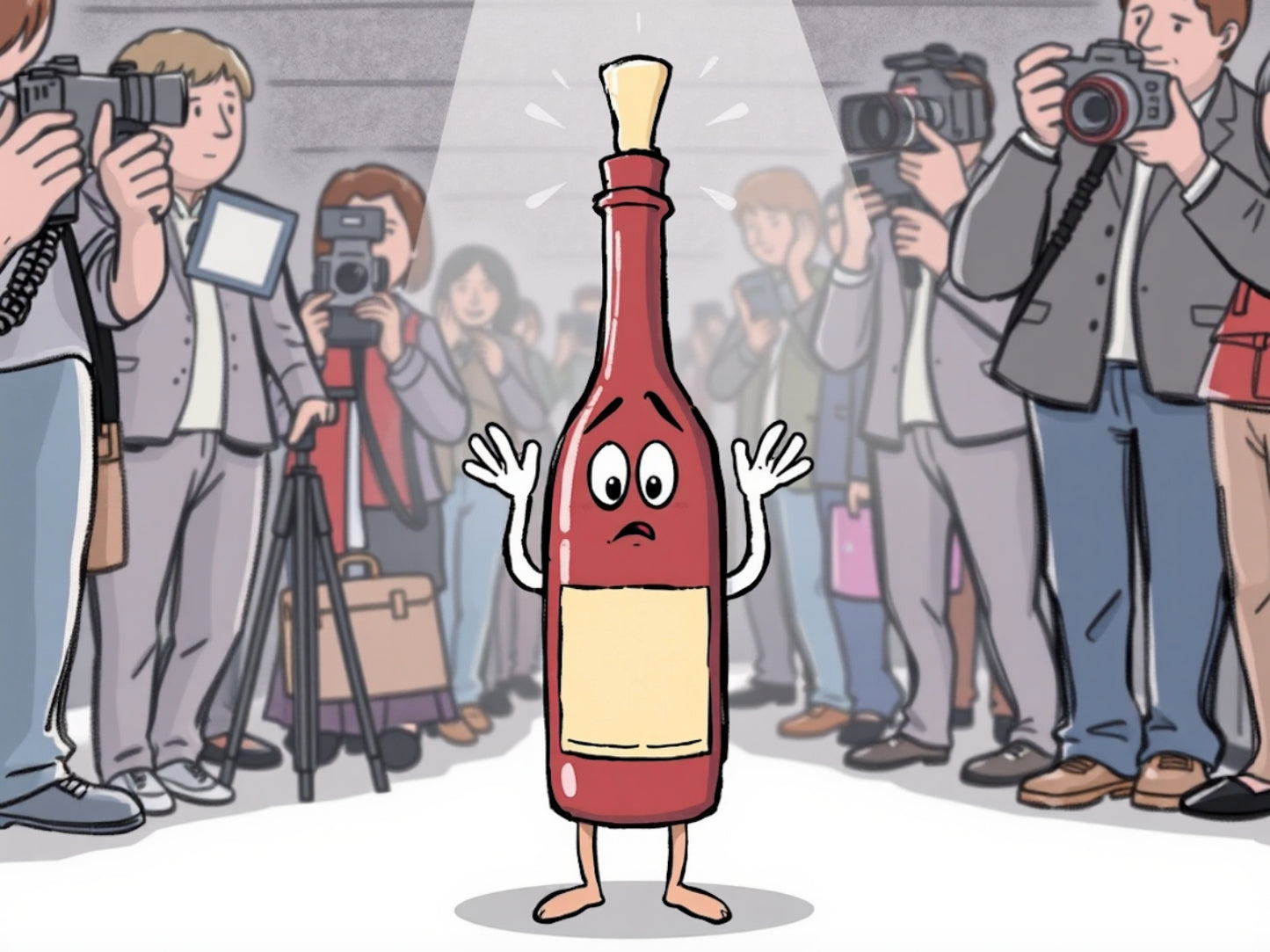
Text by: Gleb King
Picture by: Midjourney AI
You pretend you're into wine because wine snobbery is hip. You decant a young 5$ bulk merlot and cut the capsule with a somm's knife, but the only thing this bottle is worth – is to be broken against the wall. For instagram. Let's take off our bowties and be honest – wine doesn't need musketeers juggling with chandeliers anymore. No matter what old critics moan, here in 2024, everything is on Google. Wine is fully understood – it’s not sacred anymore. It has its own sins. Here are ten.
1. Wines for 7$ and for 10$ are the same
If you keep in mind that most retailers do 50% discounts with ease and sell twice as cheap things that may cost twice as expensive – you understand that prices are theater. And even more so when it comes to wine. The 7-10$ range is the firing field for marketing managers. If you choose between the cheaper and the more expensive – take the cheaper one and get yourself some beer for change.
2. Most wineries use cheap workforce
It's still not clear whether it's good or not, but for instance, during the harvest in Piemonte you may find ex-soviet europeans from Romania and Bulgaria picking grapes. The owner may tell you they work faster and cleaner than Italians. The fact is all the handpicking that is proudly declared on the label – is a hard and not always well-paid job.
“The syrah or shiraz, especially the aussie one – is the «knobs to the right» of the wine world”.
3. Shiraz is for beginners
If you like dense and concentrated, jumping-out-the-glass wines, it means that your tastebuds are hard to reach. The same happens with hardcore music lovers – those people are so indistinct to sounds in general that music can be knocked into them only in «all knobs to the right» mode. And the syrah or shiraz, especially the aussie one – is the «knobs to the right» of the wine world.
4. Your favorite oaky never saw a barrel
If you've never heard of wooden chips and bulk wine – welcome to the 5$ wine bingo. The wine costs immoraly cheap and nevertheless there's a «riserva» label sign? They soaked some wood inside for taste! It's ok though. Sometimes a barrel wine is even worse than the wooden chips-reserved one.
5. Everyone is a wine critic
The world is ruled by numbers. Money – the paper incarnation of numbers – is the boss. The market is fine-tuned for aggressive consumerism where numbers play the main role. When the bottle has a number – the critic score – you, like Pavlov's dog – are supposed to be mouthwatering. Even though the critics taste around 10 000 bottles a year which is a little more than 27 bottles a day – yes, the market still trusts them. Even if we discover that some of them started wine careers as tennis players and lawyers. The 90+ figure on the bottle is a bait for your money. Set your own wine scores.
6. Bartenders don't give a damn about wine
Ask a barman – what's the difference between Chassagne and Puligny, and watch. Mixologists don't know a word about wine, and even more – they don't care about it because their tastebuds are burnt with aquavites, mezcals, piscos and other highly explosive stuff. To talk about wine with them is even harder than to watch the shiraz lover sipping a glass of pinot.
7. Top sommeliers are useless
Whatever you drink – master somms don’t quite like it. They got reasons. You dare to ask them why? Brace yourselves, you are about to hear an hourly lecture on the importance of Slovenian tangerines and the rise of Chinese properties on the left bank of Gironde. This is quite interesting but it has nothing in common with real wine. People who spent decades training to blind-sort same varieties from different slopes are not able to enjoy wine like you. They are massively biased. The most valuable person in the wine industry is still the consumer.
“If you pour a young and cheap wine from one vessel to another, it may be good for you but not for the wine”.
8. Decantation is pointless
Decantation, like other exciting things in the world, has been invented by the French. It’s meant to separate wine from sediment and oxidate it. However, simple wines, which are plenty, are to be consumed with such speed that oxidation is not their thing. Also they have no sediment. So, if you pour a young and cheap wine from one vessel to another, it may be good for you but not for the wine.
9. Wine won’t make you healthier
It's hard to count how many times people liked and reposted the buzzfeed kind of articles about health benefits of probably the most unhealthy thing – alcohol. There is a strong belief that red wine is somehow a medicine. But actually the healthiness of resveratrol – the hopes and prayers of all us, winos – is still not scientifically proven. Wine may help body work only because it contains good old ethanol, which, in microportions, stimulates our blood vessels and in fair amounts – the broken hearts.
10. Expensive wines are not that expensive
Sassicaia, Vega Sicilia, Screaming Eagle, Château d'Yquem – those are names that are supposed to drag money like a magnet and they do – just because society needs them to sort the rich from the poor. Like all other luxurious items – they are no better than their reasonably priced fellows. Maybe only slightly. But the huge amount of their price is not in their rarity or complexity. Moët & Chandon, for instance, produces 5 000 000 bottles of Dom Pérignon a year. Rich people are a huge part of the world and they need something to drink at the disco.
